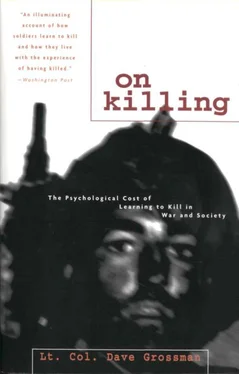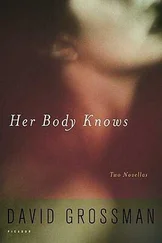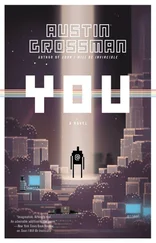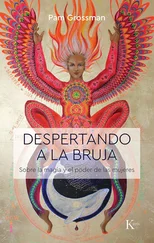Today, even as we waken from the nightmare of sexual repression, our society is beginning to sink into a new denial dream, that of violence and horror. This book is an attempt to bring the objective light of scientific scrutiny into the process of killing. A. M. Rosenthal tells us:
The health of humankind is not measured just by its coughs and wheezes but by the fevers of its soul. Or perhaps more important yet, by the quickness and care we bring against them.
If our history suggests unreason’s durability, our experience teaches that to neglect it is to indulge it and that to indulge it is to prepare hate’s triumph.
“To neglect it is to indulge it.” This is, therefore, a study of aggression, a study of violence, and a study of killing. Most specifically, it is an attempt to conduct a scientific study of the act of killing within the Western way of war and of the psychological and sociological processes and prices exacted when men kill each other in combat.
Sheldon Bidwell held that such a study would by its very nature lay on “ dangerous ground because the union between soldier and scientist has not yet passed beyond flirtation.” I would seek to go in harm’s way and effect not just a serious union between soldier and scientist, but a tentative menage a trois between soldier, scientist, and historian.
I have combined these skills to conduct a five-year program of research into the previously taboo topic of killing in combat. In this study it is my intention to delve into this taboo subject of killing and to provide insight into the following:
• The existence of a powerful, innate human resistance toward killing one’s own species and the psychological mechanisms that have been developed by armies over the centuries to overcome that resistance
• The role of atrocity in war and the mechanisms by which armies are both empowered and entrapped by atrocity
• What it feels like to kill, a set of standard response stages to killing in combat, and the psychological price of killing
• The techniques that have been developed and applied with tremendous success in modern combat training in order to condition soldiers to overcome their resistance to killing
• How the American soldier in Vietnam was first psychologically enabled to kill to a far greater degree than any other soldier in history, then denied the psychologically essential purification ritual that exists in every warrior society, and finally condemned and accused by his own society to a degree that is unprecedented in Western history. And the terrible, tragic price that America’s three million Vietnam veterans, their families, and our society are paying for what we did to our soldiers in Vietnam
• Finally, and perhaps most important, I believe that this study will provide insight into the way that rifts in our society combine with violence in the media and in interactive video games to indiscriminately condition our nation’s children to kill, in a fashion very similar to the way the army conditions our soldiers, but without the safeguards. And we will see the terrible, tragic price that our nation is paying for what we are doing to our children.
I am a soldier of twenty years’ service. I have been a sergeant in the 82d Airborne Division, a platoon leader in the 9th (High Tech Test Bed) Division, and I have been a general staff officer and a company commander in the 7th (Light) Infantry Division. I am a parachute infantryman and an army Ranger. I have been deployed to the Arctic tundras, the Central American jungles, NATO headquarters, the Warsaw Pact, and countless mountains and deserts. I am a graduate of military schools ranging from the XVIII Airborne Corps NCO Academy to the British Army Staff College. I graduated summa cum laude from my undergraduate training as a historian, and Kappa Delta Pi from my graduate training as a psychologist. I have had the privilege of being a cospeaker with General Westmoreland before the national leadership of the Vietnam Veterans Coalition of America, and I have served as the keynote speaker for the Sixth Annual Convention of the Vietnam Veterans of America. I have served in academic positions ranging from a junior-high-school counselor to a West Point psychology professor. And I am currently serving as the Professor of Military Science and Chair of the Department of Military Science at Arkansas State University.
But for all this experience, I, like Richard Holmes, John Keegan, Paddy Griffith, and many others who have gone before me in this field, have not killed in combat. Perhaps I could not be as dispassionate and objective as I need to be if I had to carry a load of emotional pain myself. But the men whose words fill this study have killed.
Very often what they shared with me was something that they had never shared with anyone before. As a counselor I have been taught, and I hold it to be a fundamental truth of human nature, that when someone withholds something traumatic it can cause great damage. When you share something with someone it helps to place it in perspective, but when you hold it inside, as one of my psychology students once put it, “it eats you alive from the inside out.” Furthermore, there is great therapeutic value in the catharsis that comes with lancing these emotional boils. The essence of counseling is that pain shared is pain divided, and there was much pain shared during these periods.
The ultimate objective of this book is to uncover the dynamics of killing, but my prime motivation has been to help pierce the taboo of killing that prevented these men, and many millions like them, from sharing their pain. And then to use the knowledge gained in order to understand first the mechanisms that enable war and then the cause of the current wave of violent crime that is destroying our nation. If I have succeeded, it is because of the help given to me by the men whose tales are told herein.
Many copies of early drafts of this work have been circulating among the Vietnam veterans’ community for several years now, and many veterans have carefully edited and commented on those drafts. Many of these vets read this book and shared it with their spouses. Then those wives shared it with other wives, and these wives shared it with their husbands. And so on. Many times the veterans and/or their wives contacted me and let me know how they were able to use this book to communicate and understand what had happened in combat. Out of their pain has come understanding, and out of that understanding has come the power to heal lives and, perhaps, to heal a nation that is being consumed with violence.
The men whose personal narratives appear in this study are noble and brave men who trusted others with their experiences in order to contribute to the body of human knowledge. Many killed in combat. But they killed to save their lives and the lives of their comrades, and my admiration and affection for them and their brothers are very real. John Masefield’s poem “A Consecration” serves as a better dedication than any I could write. The exception to this admiration is, of course, addressed in the section “Killing and Atrocities.”
If in my absence of euphemisms and my effort to clearly and clinically speak of “killers” and “victims,” if in these things the reader senses moral judgment or disapproval of the individuals involved, let me flatly and categorically deny it.
Generations of Americans have endured great physical and psychological trauma and horror in order to give us our freedoms. Men such as those quoted in this study followed Washington, stood shoulder to shoulder with Crockett and Travis at the Alamo, righted the great wrong of slavery, and stopped the murderous evil of Hitler. They answered their nation’s call and heeded not the cost. As a soldier for my entire adult life, I take pride in having maintained in some small way the standard of sacrifice and dedication represented by these men. And I would not harm them or besmirch their memory and honor. Douglas MacArthur said it well: “However horrible the incidents of war may be, the soldier who is called upon to offer and give his life for his country, is the noblest development of mankind.”
Читать дальше







